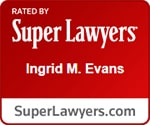ATTORNEY NEWSLETTER
False Grant Certifications Alleged
Disabled Resident Brings Suit
How Whistleblower Cases Work Under The False Claims Act
Fraud against the government comes in many varieties. It may involve fraudulent claims for payment of medical services under Medicare and Medicaid. It may involve false submission for payments under government contracts. It can involve illegal kickbacks on government contracts or for medical referrals. It may also involve false certification for government grants or knowingly submitting claims for payments that are in fact ineligible under the law. All knowing submissions of false claims to the government constitute violations of the False Claims Act. See False Claims Act (FCA), 31 U.S.C. §§ 3729 et seq. Individuals with knowledge of knowing violations of the FCA and false claims for payment or reimbursement from the government, may bring an action (called a “qui tam” case) on behalf of the government for the fraud perpetrated against the government. Rewards for the individuals (referred to as “relators”) bringing the actions can equal 15-30% of the amount recovered. 31 U.S.C. § 3730(d). If you have credible information for a false claims whistleblower case on behalf of the federal government in San Francisco or elsewhere in California, call us today at (415)441-8669 and we can help. Our toll-free number is 1-888-50EVANS (888-503-8267).
Recent Case Example[1]
The U.S. Department of Justice (DOJ) recently announced that one large California city agreed to pay $38.2 million to settle whistleblower allegations that it violated the False Claims Act by misusing U.S. Department of Housing and Urban Development (HUD) grant funds by falsely certifying that homes were accessible to people with disabilities. The case stems from a qui tam whistleblower suit filed by a city resident who uses a wheelchair and a nonprofit disability rights advocacy group.
The government alleges that for over a decade, the municipality failed to follow federal accessibility laws when building and rehabilitating affordable multifamily properties and failed to make its affordable multifamily housing program accessible to people with disabilities. The housing was not structurally accessible because of failures like slopes that were too steep, counters that were too high, and thresholds that did not permit wheelchair access, the government further alleges. According to the government, the city falsely certified to HUD that it complied with grant requirements mandating that recipients of federal housing development funds must comply with federal accessibility laws.
“By failing to make certain that HUD-funded multifamily housing was appropriately built or rehabilitated to meet federal accessibility requirements, the city discriminated against people with disabilities,” said HUD Inspector General Rae Oliver Davis.
“This settlement shows that we will hold accountable jurisdictions receiving federal grant money to ensure they satisfy their obligations to make affordable housing accessible to people with disabilities,” said Principal Deputy Assistant Attorney General Brian M. Boynton, head of the Justice Department’s Civil Division.
Starting A Qui Tam Action
Any False Claims Act whistleblower case begins by a relator filing a complaint under seal in the federal court usually for the United States District Court for the district where defendant is located or does business. At the same time, the relator submits a disclosure to the DOJ outlining the material evidence the relator has of the alleged false claims. 31 U.S.C. § 3730(b). The seal period of the complaint lasts 60 days during which the DOJ investigates the claims. 31 U.S.C. § 3730(b)(2). (If necessary, the government can, and often does, extend the 60-day period during which the allegations are kept under seal.) If the government decides to intervene in the case, the government essentially takes over the litigation. 31 U.S.C. § 3730(c)(1). If the government declines to intervene, the relator may proceed with the litigation on his or her own. 31 U.S.C. § 3730(c)(3).
Contact Us
If you have credible information of government fraud in San Francisco or elsewhere in California, call Ingrid M. Evans at (415) 441-8669, or toll-free at 1-888-50EVANS (888-503-8267) or by email at <a href=”mailto:info@evanslaw.com”>info@evanslaw.com</a>. In addition to FCA and CFCA whistleblower cases, Ingrid and Evans Law Firm, Inc. also handle bank fraud whistleblower cases under FIRREA/FIAFEA, commodity trading and securities fraud under the Commodities Futures Trading Commission Whistleblower Program and the Securities and Exchange Commission Whistleblower Program, and tax fraud under the Internal Revenue Service Whistleblower Program.
[1] Evans Law Firm, Inc. was not involved in the case in any way.





